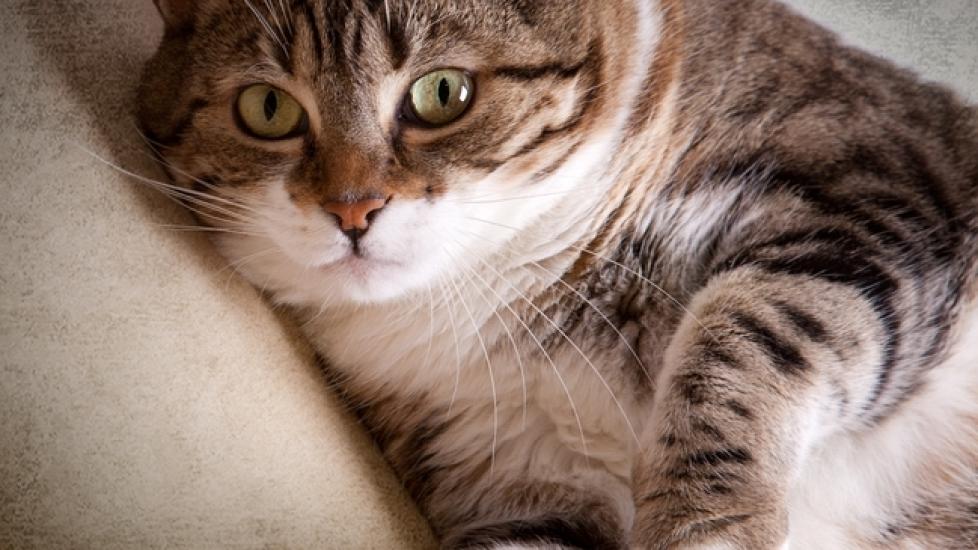Does Spaying and Neutering Make Cats Fat?
Although most of my clients are eager to have their cats spayed or neutered (and no wonder — have you ever tried to live with a tom cat or queen in heat?), an almost universal concern is that their cats will get fat after the surgery.
Research is a little ambiguous on the question of whether or not a cat’s energy needs decline after sterilization. Some studies seem to support this assertion, while others do not. Practically, however, veterinarians take this effect into account when determining how many calories a day a cat should be eating. For example, the resting energy requirements (RER) for an adult cat that weighs 10 pounds would be around 218 kcal per day. But we apply certain multipliers to this number to determine what an individual’s maintenance energy requirement (MER) actually is.
The MER is what we’re actually interested in. This is the number of calories a cat needs on a daily basis, taking into consideration her activity level, reproductive status, any illnesses she might have, whether or not we’re trying to help her lose weight, etc.
The "multiplier" for a typical spayed or neutered cat is 1.2, while that for an intact individual is 1.4, which leads us to a MER of 261kcal/day for the former and 305 kcal/day for the latter.
But even if spayed and neutered cats need fewer calories per day than do intact cats, that doesn’t mean they are destined to get fat. I recently ran across the results of two studies that showed when female and male cats had free access to food, they both ate significantly more post-surgery than they did pre-surgery. I can’t come up with a good explanation for this. Nobody argues that a cat’s needs for calories increase after spaying and neutering, so why are the cats eating more? Something to do with the hormonal changes going on in their bodies, I suppose.
In the study involving female cats, spayed kittens ate significantly more four weeks after the surgery (well after they’ve healed); this effect peaked 10 weeks after the spay. By 18 weeks post-surgery, spayed and non-spayed females were eating similar amounts. The study on male cats showed a dramatic increase in food intake in some cats during the first week post-surgery, with some cats experiencing a 10 percent increase in body weight.
While there are some differences in these two studies, the take home message is essentially the same. Portion control post-spaying and neutering is VERY important to prevent cats from gaining weight. I regularly argue that meal feeding is a healthier alternative for cats throughout most of their lives in comparison to free choice feeding, but even if you disagree, consider restricting your cat’s portions for 4-5 months after it has been spayed or neutered to help prevent weight gain.
Of course, you don’t want to scrimp on nutrition during this important time (after all, most cats are spayed or neutered when they are still young and growing), so make sure the food that you are offering packs a lot of nutritional bang per bite and is made from natural, high-quality ingredients.

Dr. Jennifer Coates
Image: Nailia Schwarz / via Shutterstock
